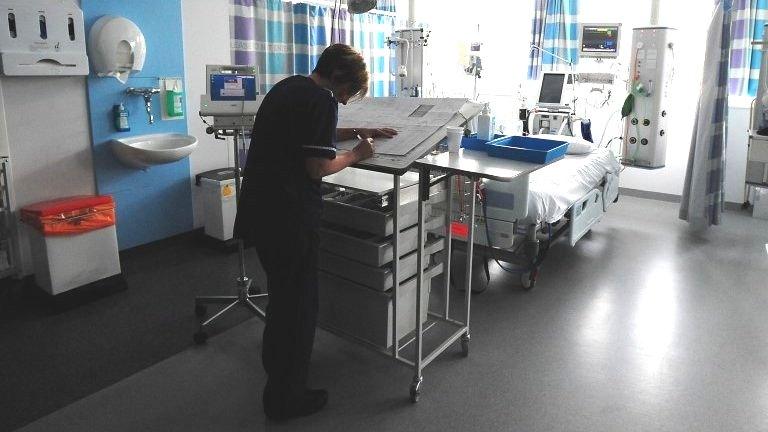Why firefighters could save the NHS
- Published
- comments

Firefighters are crucial to the health of the nation. "Of course they are," I hear you say. After all, they put out fires don't they?
Yes they do. But that's not what I'm getting at. Crews spend only an estimated 5% of their time actually putting out fires. It's what they are increasingly spending the other hours doing that could end up making a significant difference.
In recent years - largely because councils have been given responsibility for public health - there's been a lot of soul-searching about how local services can link together to tackle everything from smoking to obesity.
This has manifested itself in a growing number of fire services across the country looking to go that extra mile. Some have run fitness courses for youngsters, while others have started working with the homeless.
Health ambassadors
One of the most obvious and popular ways of improving health and social conditions has been through the fire safety check programmes. Fire services have been carrying out these for years to check that people are taking the right precautions, such as fitting properly working smoke alarms.
But instead of leaving it just at a simple fire check, some services have used this as an opportunity to raise health issues and put people in contact with local agencies that can help.
The work of the fire service has been highlighted by Prof Sir Michael Marmot, a leading health inequalities expert who has advised government, in his new book The Health Gap, as well as being championed by the Local Government Association.
Sir Michael describes how fire services have effectively become health ambassadors, using their unique access into people's homes to help change their lives.

Case study: How firefighters make a difference
Merseyside fire service was one of the first to take an interest in tackling health and social problems. The fire prevention team use their home visits to help identify those who need help and, where they can, refer people to local agencies that can assist.
One of those to benefit is 84-year-old Joan. When she received her fire safety home visit, it was noticed she was struggling to look after herself and was in poor health. The fire service - with the help of local agencies - persuaded her to quit smoking, and she eventually moved into a care home.
Her daughter, Christine McEvoy, says the difference in her mother is "fantastic". "Her overall wellbeing and outlook on life has greatly improved," she adds. "I now have my mother back, and every time I visit her I'm overwhelmed at how wonderful she looks and how happy she is."

Sir Michael says they are a "magnificent example" of what can be achieved and urges the rest of society to think about what they can do. He has spent the past decade or so leading the fight on health inequalities, arguing that people need support and the right environment to help them make the right choices, particularly those in the most deprived circumstances.
It is an argument that has convinced politicians. His thinking helped inform the coalition's 2010 public health white paper, which called for a wider responsibility from business, government and the public sector in addressing ill health.
Since then, though, he has been disappointed with the record of central government, describing the recent announcement that the public health budget will be cut as "very bad".

Encouraging people to live healthier lives is crucial - not only to individuals but also to society.
Ministers have made much of their decision to give the NHS extra money this Parliament - £8bn a year by 2020 - but equally important to the NHS are two other factors: increasing efficiency in the health service and reducing the burden of ill health.
This was made clear in NHS England's five-year plan, external, published last autumn.
But it is clear the benefits will be felt in the wider economy too. In the coming decades the pension age is rising so that by 2046 it will be 68. This graph below shows predicted life expectancy and disability-free life expectancy (in other words the point at which health starts deteriorating) for children who were born at the turn of the century.
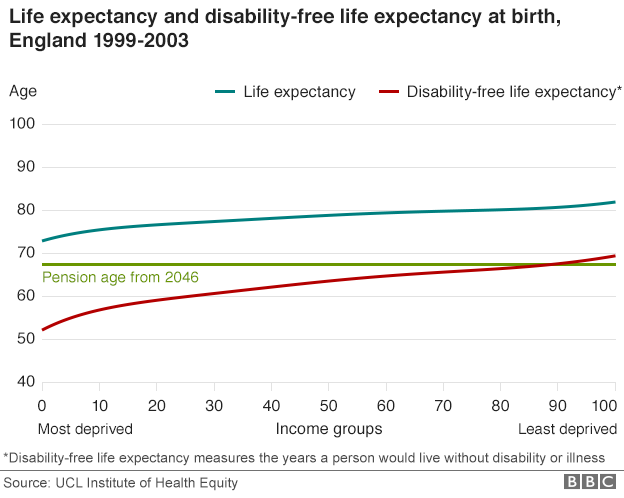
These are the children who currently fill our secondary schools. Only those from the wealthiest families are likely to be healthy enough to be working at full capacity right up to retirement age.
In terms of mortality, Sir Michael has calculated that 200,000 early deaths a year could be prevented if everyone enjoyed the life expectancy of the wealthiest.
The message is clear: the health of the nation needs saving. Who will join the firefighters in answering the emergency call?
- Published16 July 2015

- Published16 July 2015
- Published21 June 2015
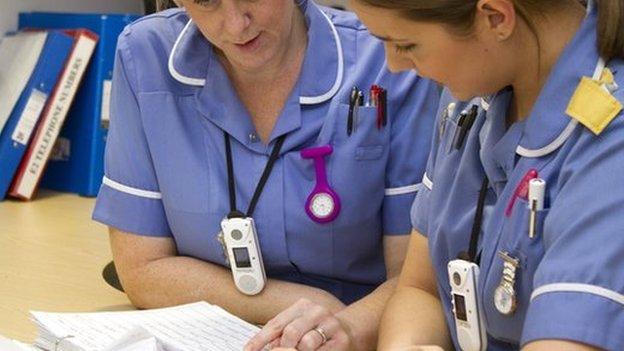
- Published19 June 2015
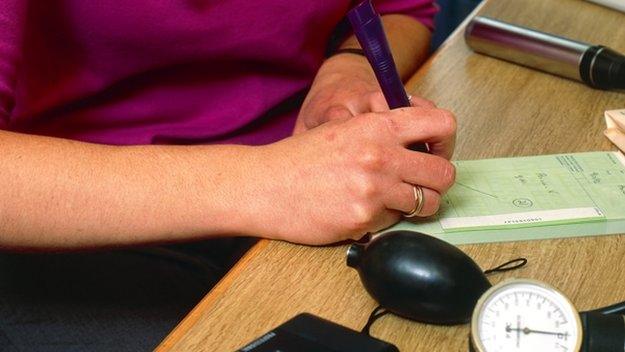
- Published19 June 2015
- Published30 September 2014
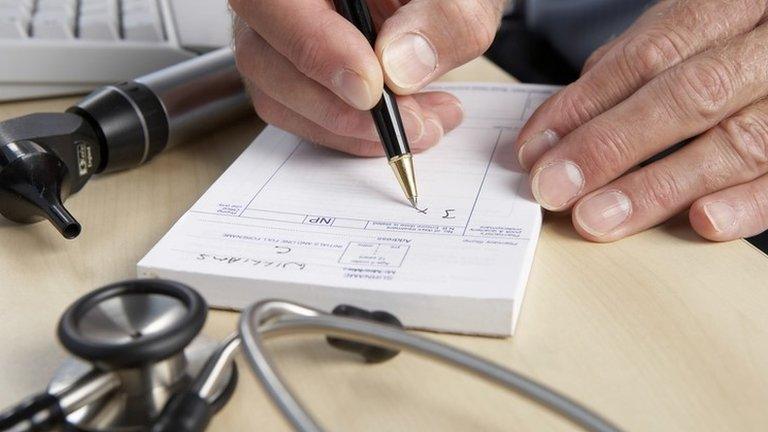
- Published15 December 2013
